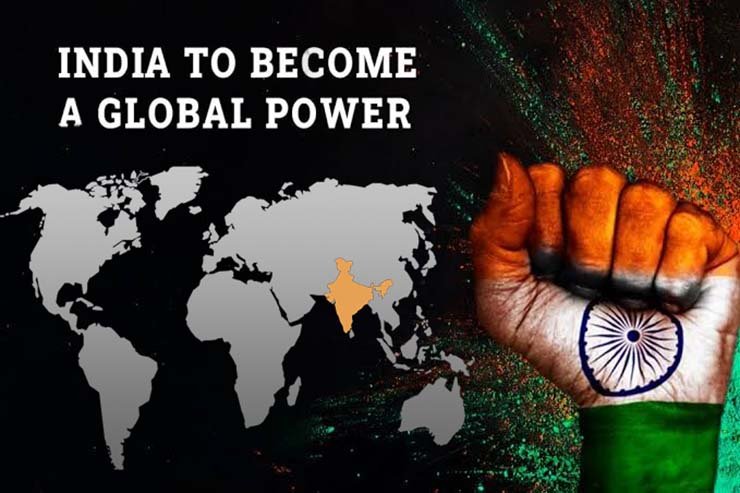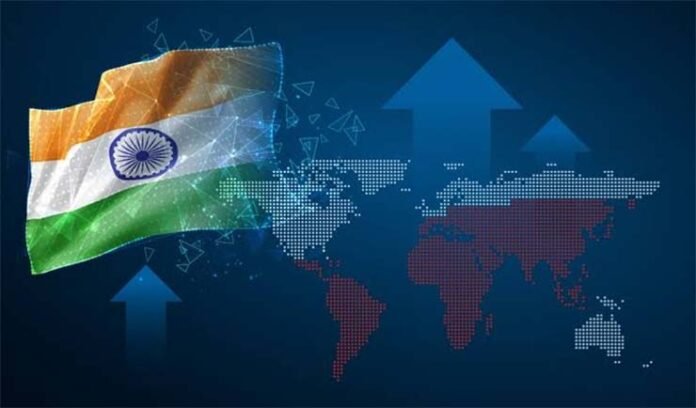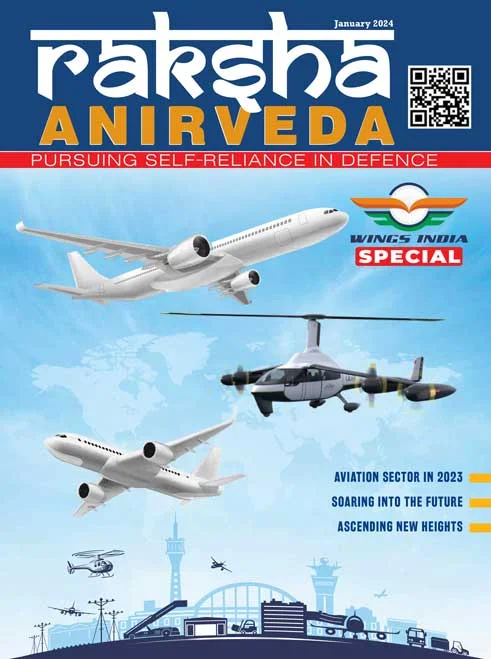India’s emergence as a South Asian giant after 1971, followed by its economic growth since 1991, has impacted the global geopolitics also. The nation that survived on doles of PL-480, today exercises “Strategic Autonomy” and has emerged as a prominent global player. It has a positive role to play in the emerging matrix of global geopolitics.
Its strategic location, coupled with its rapid economic growth and “military muscle”, makes it a dominant power in global affairs, with tremendous potential to compete with the USA and China by 2047. Its say in global bodies, like BRICS and SCO, or even at the UN, is very well honoured. Its global supremacy in IT and Pharmaceutical industries have made a mark in the world. Its armament and defence sector are catching up with global standards.
It is important to analyse how global geopolitics is linked to India. Here are some indicators, for the same;
First, while the USA sees India as a “Strategic Partner” in the Indo-Pacific (the name was changed from Asia Pacific to placate India), it shows the rising clout of India. USA recognises that only India could balance the power equation and checkmate China from challenging the US’s global domination.
India’s “Strategic endurance” made China buckle down and opt for disengagement on the border with India. China’s aggressive misadventure since April 2020 turned out to be futile
Secondly, the world looks at India to bring peace in the two major ongoing conflicts in Middle East and Europe. It is only India who could get a tactical pause in Ukraine – Russian war to extricate Indian students from war zone in Ukraine. Indian Prime Minister, Narendra Modi’s recent visit to Russia and Ukraine, showed that even belligerent nations listen to India. At the SCO meeting at Samarkand, Uzbekistan in 2022, Indian PM had told Russian President, Vladimir Putin, “This was not an era of war”. It was highly appreciated all over the world.
Thirdly, India’s “Strategic endurance” made China buckle down and opt for disengagement on the border with India. China’s aggressive misadventure since April 2020 turned out to be futile. It saw the Indian response equally matching. Galwan incident of June 2020, dampened its aggressive spirits. India had banned some 100 odd Apps of China which hurt the Chinese economy. China has realised that India was no more a “military weakling” to deliver a la-1962.
Fourthly, India’s “Strategic Defiance” made USA buckle down and avoid imposing economic sanctions against India. India purchased crude oil from Russia, despite threats of economic sanctions. Same was true when India went ahead with building Chabahar Port in Iran. Despite threats of dreadful consequences, the US eventually backed down. This was due to the realisation that India was the US’s need to balance the geopolitical power equation in the world.
Despite threats of dreadful consequences, the US eventually backed down, when India bought oil from Russia and helped Iran in building Chahbahar Port. This was due to the realisation that India was the US’s need to balance the geopolitical power equation in the world
Fifthly, India’s rapid economic growth is also reshaping the global geopolitics. India is expected to become the third largest global economy by 2030. Some economic pundits predict that by 2047, India would be the second largest global economy. Indian economy is slated to grow to $55 trillion by 2047, if the country can register an average real growth rate of 8 per cent in the coming years with average inflation remaining around 5 per cent, the growth is achievable.
Sixthly, India is emerging as a leader of the “Global South” with its rising economic investments through private businesses in Africa. Indian investments in Kenya, Namibia and other African countries are on the increase. Indian corporate houses like Tata, Adani and Ambani have become house hold names over there.

Seventhly, the recent BRICS meet in Russia has shown where India stands. The push for BRICS currency would affect global trade and commerce and challenge the hegemony of the US dollar. Interestingly, Indian Rupee is now acceptable in 30 countries.
Eighthly, giants of the Middle East, such as Saudi Arabia, Qatar and UAE acknowledge India’s prominence in Global affairs. Qatar had to release 8 ex-Indian Naval officers, sentenced to death, due to the Indian pressure.
India is emerging as a leader of the “Global South” with its rising economic investments through private businesses in Africa
Ninthly, despite Iranian supreme leaders’ remarks on Kashmir, the government of Iran continues to look towards India to resolve conflict with Israel. Chabahar port is still with India.
Penultimately, India’s “Strategic Location” which dominates East – West supply chain movement through Indian Ocean, with its economic growth and military power, enables India to reshape the Global Geopolitics. India’s control of Malacca Strait at Andaman and Nicobar Islands allows her to choke it, thus pressurising the whole Europe.
Finally, it should be understood that India is the future’s pivot on which would revolve the world geopolitics. “Defiant Neighbours” in South Asia are learning their lesson that enmity with India was too dangerous to continue with. Pakistan is crying and begging for better relations. Maldives has fallen on its knees. Nepal has understood that it cannot survive without the Indian support. Bangla Desh’s love affair with ISI- CIA orchestrated coup, would soon be over. Mohammed Younus has realised that his days are numbered.
All this shows that the fulcrum of Global Geopolitics is India and its pre-eminence position in South Asia. You cannot discuss Global affairs without keeping India at the centre. Trends are visible that in future, calls for SANU (South Asian Nation Union) would make India an un-refutable voice in Global affairs.
-An ex-NDA and Wellington Staff College graduate, Col Rajinder Singh is a renowned author and security analyst. He has authored four books, two individually and two in collaboration. His best-selling books are Kashmir – A Different Perspective and The ULFA Insurgency. The views expressed are of the author and do not necessarily reflect the views of Raksha Anirveda










